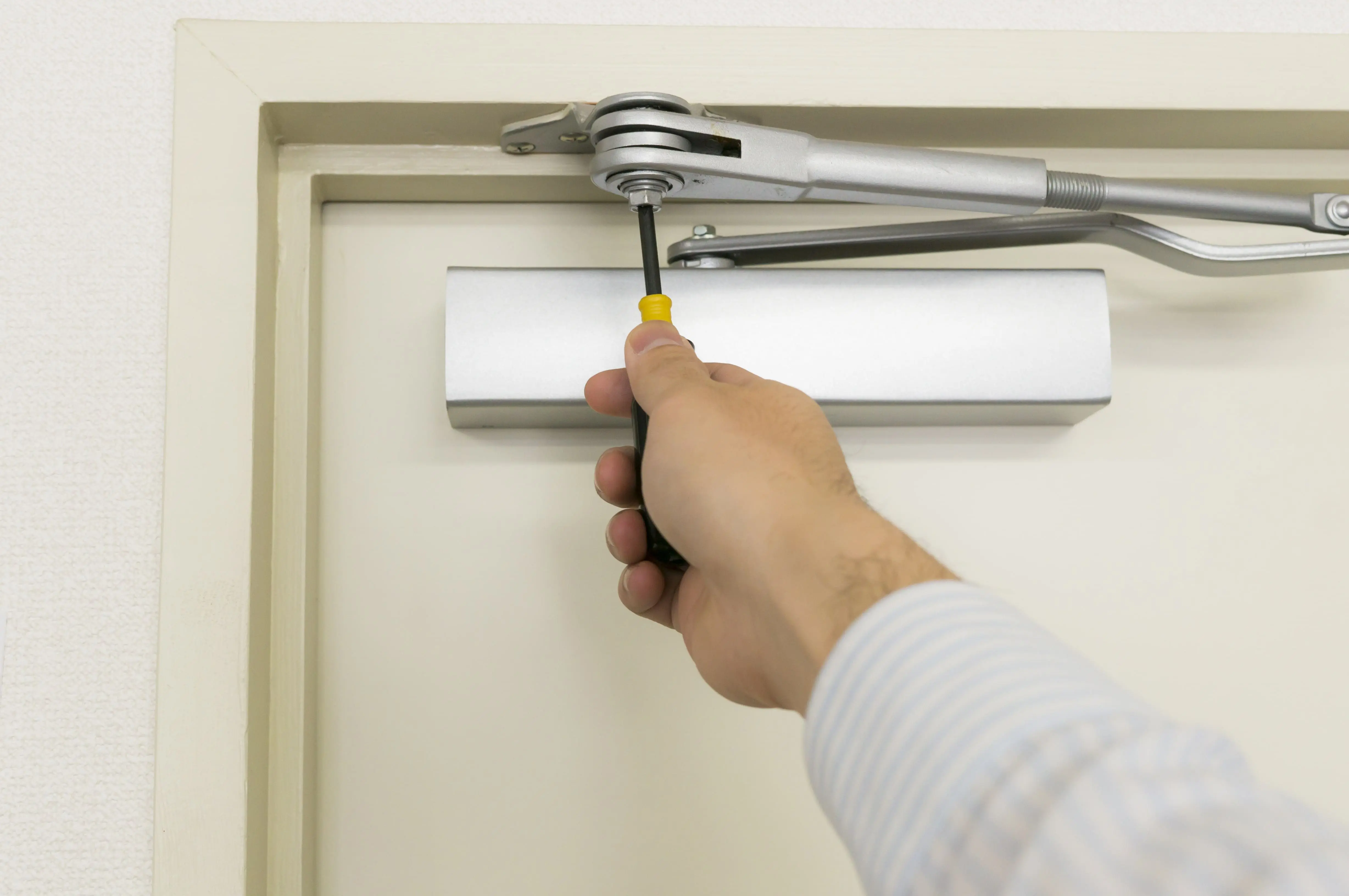10 WAYS TO PROPERLY MAINTAIN COMMERCIAL DOORS
Commercial doors take a lot of abuse. In general, they see a lot more use than your average residential door, which strains booth the door and the attached hardware. The Flying Locksmiths team receives hundreds of calls per year from businesses with malfunctioning or completely broken doors that suffer from constant use with no maintenance.
Broken levers, sagging doors, leaking closers, busted hinges and misaligned latches are just some of the issues that we see every day. In most cases, these problems can be avoided proactively just by following the commercial door maintenance tips that we’ll outline below.
1. Do not leave doors propped open.
Even if you are just running out to the car to grab something, it’s a bad idea to prop your door open. Doors are not meant to be left in an open position without a special “hold-open” closer, and doing so can cause unnecessary strain or damage to the door’s hardware. In some instances, propping open a door will create alignment issues. Cheaper doors may even bend due to constant propping.
2. Try to be gentle with commercial doors.
Commercial doors already have to deal with a lot of wear and tear, and using excessive force to open them does not help. Using your foot to “karate kick” a crash bar for example, is almost certainly going to decrease the lifespan of the device. Similarly, forcefully turning your key as you unlock the door will often lead to broken keys and locks, which is not something a business wants to deal with. If you need that much power to unlock and open your door, there’s probably a deeper issue – make a call to your local locksmith and let them assess the situation.
3. Keep the door dry.
If you are cleaning the back of a restaurant with a hose, or doing some gardening, try to avoid getting the door and hardware wet. Usually, exterior door hardware is weatherproofed, but there is a big difference between rainfall and soaking something with a hose. Water causes rust, rust causes hardware to malfunction and, in extreme cases, hardware malfunctions lead to doors falling apart.
4. Be Proactive, not Reactive.
If you have trouble using your key one morning, don’t wait until you are ready to leave for the day to call a locksmith, and don’t wait until your lock breaks to call a locksmith. Getting things fixed as problems arise and keeping up with hardware maintenance will save your business money in the long run and keep your building secure.
5. Paint the doors.
Certain paints are made to resist rust and can really help extend the life of a commercial door. If the current paint is chipped, apply another coat to prevent rust from forming and causing damage.
6. Leave the exterior of the door blank.
Moisture can be trapped between signs and doors very easily. When water is trapped between the door and a sign or kick-plate, corrosion and rust will occur even more quickly than normal.
7. Fire exits should be treated differently than other commercial doors.
If a door has a lit fire exit sign above it, be very careful with any modifications you are making. Installing certain types of locks or hardware could be against fire code and make you liable if there is an accident. Consult with your local fire department or a locksmith before making any adjustments to these types of commercial doors.
8. Adjust door closers regularly.
If your door always slams, or closes too slowly, this could be a sign that something is wrong with the closer. Check for any fluid leaking from the device and use an allen wrench to make proper adjustments.
9. Check the batteries on all battery-operated devices.
Just like with smoke alarms, batteries on exit alarms and card access systems should be checked on a regular basis. If something is beeping or making a strange noise, it’s usually an indication that the batteries need to be replaced. If the batteries are dead, then you have an expensive piece of hardware on the door that is essentially useless!
10. “Dog down” exit devices when you can.
Many exit devices have a built-in feature to “dog down” or manually depress the crash bar for the day. Dogging down a heavily-used door’s crash bar can extend the door’s life by eliminating a constant source of wear and tear
While these tips are meant to extend the life and effectiveness of your doors, there will come a point when things need to be repaired or replaced. When that happens, call the team at The Flying Locksmiths. We’ll send a professional, trained, and experienced locksmith to help with any problems you may be having.


